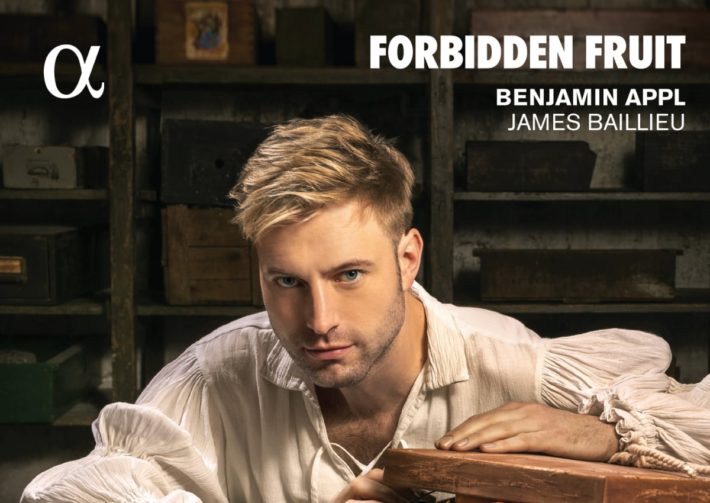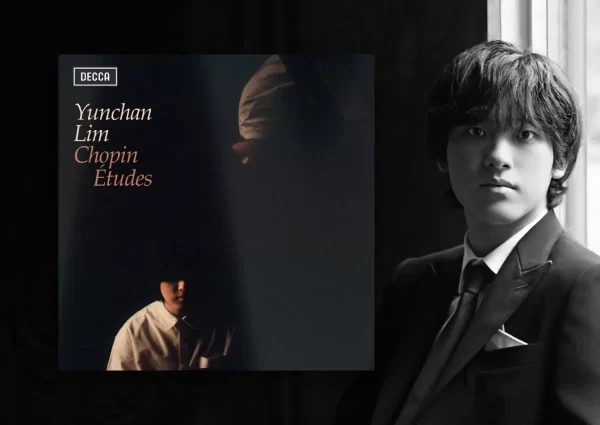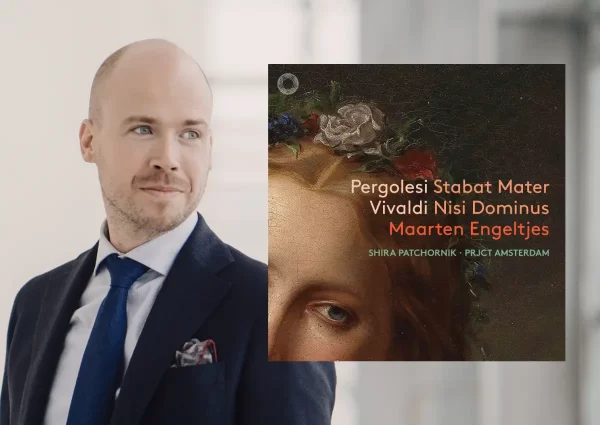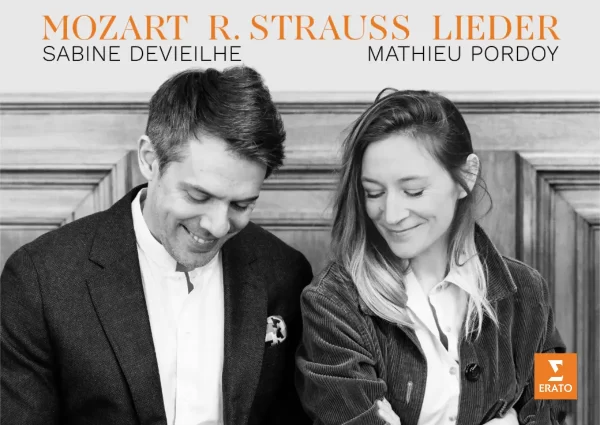Appl’s latest recital is a fascinating and engaging exploration of desire and its repercussions. Alpha provides full texts and translations, thankfully, allowing listeners to follow along and grapple with the program’s narrative thread. Appl introduces each new section in the recital with brief quotations from the Genesis story of creation (The first is “The Lord had planted a garden in Eden.”) In the liner notes he describes the first half of the recital as “primarily devoted to physical awakening, longing, seduction and intimacy.” The second half explores the ramifications of the choices made because of those desires.
The program consists of twenty-eight selections, with pianist James Baillieu’s transcription of Fauré’s “In paradisum” bookending the recital. (While the title certainly fits in with the creation story, knowing the music’s original Requiem context makes the connection less convincing.) The twenty-six songs include works by Schubert and Schumann, Wolf and Strauss, Gurney and Quilter, Debussy, and Poulenc. There is also a substantial selection of lesser-known repertoire: Hahn’s “À Chloris” (track 11), a dignified hymn to love, is captivating, though Appl’s approach, at least in the beginning, is too heavy. More successful is “Seit ich so viele Weiber sah” from Schoenberg’s Brettl-Lieder (track 21). Written in 1901 (before his serialist period), the music is sweetly lyrical one moment, playful and rambunctious the next – a little known side of this composer. Grieg’s “To a Devil” (track 23), his only song with English text, sounds like a distant cousin of the repertoire found in the Great American Songbook. The performance of Fanny Mendelssohn’s “Die Nonne” is wonderful, singer and pianist capturing the dreary sadness of the text. “Snake” from Jake Heggie’s Eve Song is another highlight.
Related Posts
- Review: Jake Heggie – “Unexpected Shadows” – Jamie Barton, Mezzo-Soprano
- Review: Schubert – Winterreise – Ian Bostridge, Thomas Adès (2019)
- Review: “Freudvoll und Leidvoll” – Songs by Liszt – Jonas Kaufmann, Helmut Deutsch
Appl’s sound is rich and velvety across all registers, and he spins a beautifully lyrical line. Occasionally he uses overly darkened vowels, and he will push his voice into a place where it sounds strained if the text seems to demand it. Throughout the recital, however, there is an unevenness in interpretive approach. For unknown reasons, Appl sometimes feels the need to over enunciate, making the formation of words such a priority that attention is drawn away from the text and its setting. This is true of the first selection, “I will give my love an apple,” a gentle folksong that, if sung simply, would have tremendous impact, but is approached here as if it is the end of a Schubert song cycle. Appl’s artful’ treatment robs the song of its true art. Bailleu’s arrangement “Just a Gigolo” is also overdone and less effective. Moreover, Appl’s approach in the more established classical works (Schubert’s “Heidenröslein” and “Gretchen am Spindale;” Schumann’s “Loreley” and “Frühlingsfahrt”) lacks the sophisticated subtlety of Terfel, Gerhaher, or Sampson, singers who always find the heart of every song they perform. In other words, there are times when our attention is brought to the interpretation of the song, rather than the music itself.
And yet there are other tracks in which Appl’s connection to and feeling for the song is completely natural (the final track, Mahler’s “Urlicht,” is a ravishing example). Despite these caveats, if the album’s program appeals, one need not hesitate. Alpha is also back on top form with the engineering, after a less than optimal recording quality on Appl’s previous album for the label. This is a singer of great promise, and I will certainly look for future releases, hoping that he finds a more consistent and subtler approach to his interpretations.

Forbidden Fruit
Benjamin Appl – Baritone
James Baillieu – Piano
Alpha, CD 912
Recommended Comparisons
Sampson | Terfel | Gerhaher | Heggie
Read more classical music reviews or visit The Classic Review Amazon store
Follow Us and Comment:
Get our periodic classical music newsletter with our recent reviews, news and beginners guides.
We respect your privacy.









